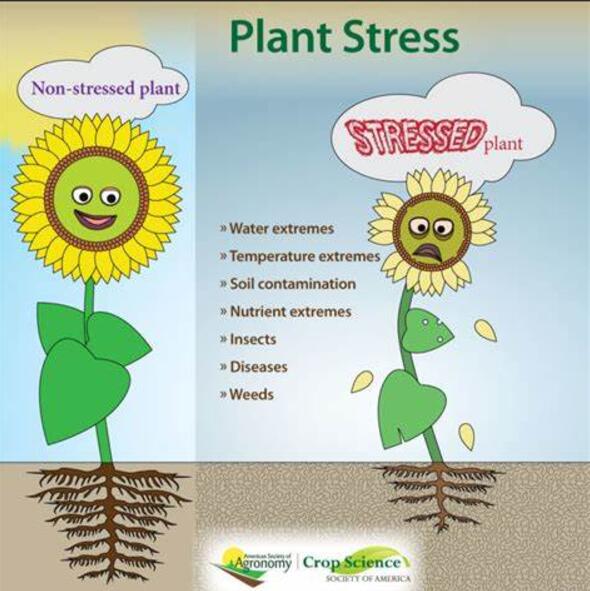Transcriptomic and physiological analyses revealed the effects of exogenous MeJA on the antioxidant system and hormone signaling network in apple roots (Malus baccata L.) in response to suboptimal low root-zone temperature stress
IF 6.8
Q1 PLANT SCIENCES
引用次数: 0
Abstract
Low temperature limits the growth and yield of apple trees. Previous experiments have proven that exogenous methyl jasmonate (MeJA) can improve the low-temperature adaptability in Malus baccata Borkh. roots which is widely used as rootstocks in northern China. Whereas the molecular mechanism of MeJA regulating the suboptimal low-temperature adaptability of apple roots remain poorly understood. The purpose of this work was to explore the potential regulating mechanisms of jasmonate signal in M. baccata roots in response to suboptimal low root-zone temperature stress (5 ± 0.5 °C for 2 h) through transcriptome and physiological analysis. Transcriptome bioinformatics analyses demonstrated that 2285 differentially expressed genes (DEGs) were predominantly associated with the jasmonates biosynthesis, hormone signaling pathways, MAPK signaling, and glutathione metabolism. Further investigations highlighted the regulating role of JAs in the low-temperature acclimation of the apple roots. Firstly, MeJA application inhibited the accumulations of reactive oxygen species and malondialdehyde in M. baccata roots through increasing antioxidant enzyme activities under suboptimal low-temperature, together with the increase of endogenous JAs levels. Secondly, the transcriptional levels of several pivotal JAs signaling genes were significantly up-regulated in the MeJA pre-treated roots under suboptimal low-temperature, verified through expression profiling and qRT-PCR analyses. Thirdly, MbMYC2 directly bound to the promoter of MbPOD, encoding a transcription factor involved in the antioxidant system, and enhanced its transcription. In summary, the mechanism of MeJA enhancing the antioxidant adaptability of M. baccata roots under suboptimal low-temperature stress has been preliminarily clarified, which provides new insights for further elaboration of molecular mechanism that are involved in low-temperature adaptability of apple roots.
转录组学和生理学分析揭示了外源MeJA对苹果根系抗氧化系统和激素信号网络响应亚优根区低温胁迫的影响
低温限制了苹果树的生长和产量。已有实验证明外源茉莉酸甲酯(MeJA)可以提高苹果的低温适应性。在中国北方被广泛用作砧木。而MeJA调控苹果根系低温适应性的分子机制尚不清楚。本研究旨在通过转录组和生理分析,探讨巴卡塔根在次优根区低温胁迫(5±0.5°C, 2 h)下茉莉酸盐信号的调控机制。转录组生物信息学分析表明,2285个差异表达基因(DEGs)主要与茉莉酸盐的生物合成、激素信号通路、MAPK信号通路和谷胱甘肽代谢相关。进一步的研究强调了JAs在苹果根系低温驯化中的调节作用。首先,在亚优低温条件下,MeJA通过提高抗氧化酶活性和提高内源JAs水平,抑制了巴卡塔根活性氧和丙二醛的积累。其次,通过表达谱分析和qRT-PCR分析证实,在亚优低温条件下,MeJA预处理根中几个关键JAs信号基因的转录水平显著上调。再次,MbMYC2直接结合到MbPOD的启动子上,编码一个参与抗氧化系统的转录因子,增强其转录。综上所述,MeJA增强巴卡塔根在亚优低温胁迫下抗氧化适应性的机制初步明晰,为进一步阐明苹果根低温适应性的分子机制提供了新的思路。
本文章由计算机程序翻译,如有差异,请以英文原文为准。
求助全文
约1分钟内获得全文
求助全文
来源期刊

Plant Stress
PLANT SCIENCES-
CiteScore
5.20
自引率
8.00%
发文量
76
审稿时长
63 days
期刊介绍:
The journal Plant Stress deals with plant (or other photoautotrophs, such as algae, cyanobacteria and lichens) responses to abiotic and biotic stress factors that can result in limited growth and productivity. Such responses can be analyzed and described at a physiological, biochemical and molecular level. Experimental approaches/technologies aiming to improve growth and productivity with a potential for downstream validation under stress conditions will also be considered. Both fundamental and applied research manuscripts are welcome, provided that clear mechanistic hypotheses are made and descriptive approaches are avoided. In addition, high-quality review articles will also be considered, provided they follow a critical approach and stimulate thought for future research avenues.
Plant Stress welcomes high-quality manuscripts related (but not limited) to interactions between plants and:
Lack of water (drought) and excess (flooding),
Salinity stress,
Elevated temperature and/or low temperature (chilling and freezing),
Hypoxia and/or anoxia,
Mineral nutrient excess and/or deficiency,
Heavy metals and/or metalloids,
Plant priming (chemical, biological, physiological, nanomaterial, biostimulant) approaches for improved stress protection,
Viral, phytoplasma, bacterial and fungal plant-pathogen interactions.
The journal welcomes basic and applied research articles, as well as review articles and short communications. All submitted manuscripts will be subject to a thorough peer-reviewing process.
 求助内容:
求助内容: 应助结果提醒方式:
应助结果提醒方式:


